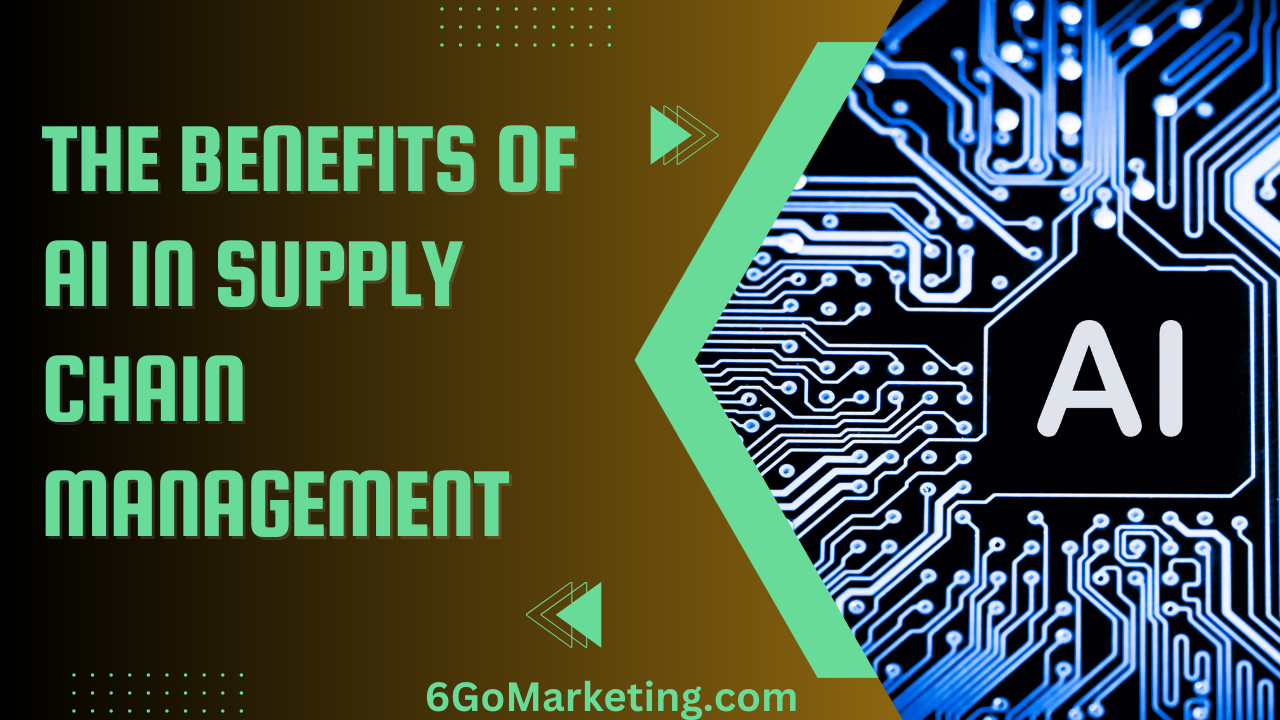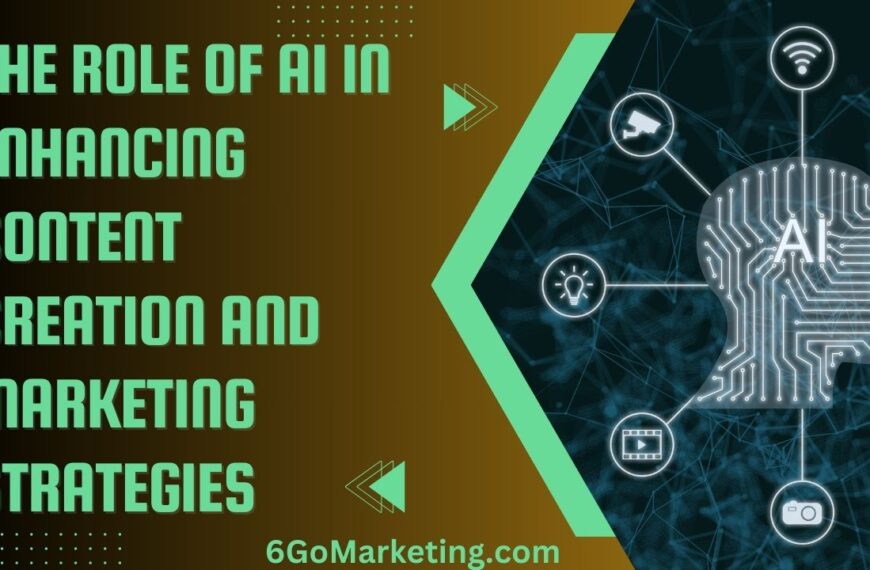In today’s globalized and fast-paced business environment, supply chain management is more critical than ever. Companies must navigate complex networks of suppliers, manufacturers, distributors, and customers to deliver products efficiently and cost-effectively.
However, traditional supply chain management methods, which often rely on manual processes and outdated technologies, are no longer sufficient to meet the demands of modern businesses. This is where Artificial Intelligence (AI) comes into play.
AI is transforming supply chain management by providing new ways to optimize operations, reduce costs, and improve decision-making. From demand forecasting and inventory management to logistics and supplier relationships, AI offers a range of benefits that can enhance every aspect of the supply chain.
In this blog post, we will explore the key benefits of AI in supply chain management, discuss how AI is being applied in real-world scenarios, and highlight the future trends that businesses need to watch.
The Role of AI in Supply Chain Management
Artificial Intelligence refers to the simulation of human intelligence in machines that are programmed to think and learn like humans. In the context of supply chain management, AI encompasses a variety of technologies, including machine learning, natural language processing, and robotics, that can analyze data, automate processes, and provide insights to improve efficiency and effectiveness.
By leveraging AI, businesses can enhance supply chain visibility, predict market trends, optimize inventory levels, and streamline logistics operations. AI-powered systems can process vast amounts of data from various sources, identify patterns, and make recommendations based on real-time information. This enables supply chain automation and allows supply chain managers to make more informed decisions, respond quickly to changes in demand, and reduce the risk of disruptions.
Key Benefits of AI in Supply Chain Management
- Improved Demand Forecasting:
- Accurate demand forecasting is essential for efficient supply chain management. AI algorithms can analyze historical sales data, market trends, and external factors such as weather and economic conditions to predict future demand with greater accuracy. This helps businesses plan their production schedules, manage inventory levels, and reduce the risk of stockouts or overstocking.
- Enhanced Inventory Management:
- Managing inventory efficiently is crucial for reducing costs and meeting customer demand. AI can optimize inventory levels by analyzing sales patterns, lead times, and supplier performance. It can automatically reorder stock when levels are low and even predict which products will be in high demand in the future. This leads to lower holding costs, fewer stockouts, and reduced waste.
- Supply Chain Visibility and Transparency:
- One of the biggest challenges in supply chain management is the lack of visibility across the supply chain. AI can provide end-to-end visibility by tracking products in real-time from production to delivery. This transparency allows businesses to monitor the status of shipments, identify potential delays, and take corrective actions before issues escalate. Enhanced visibility also improves collaboration with suppliers and helps ensure compliance with regulations.
- Streamlined Logistics and Transportation:
- AI is revolutionizing logistics and transportation by optimizing routes, reducing delivery times, and lowering fuel consumption. AI-powered systems can analyze traffic patterns, weather conditions, and delivery constraints to determine the most efficient routes for transportation. Additionally, AI can predict and prevent potential disruptions, such as vehicle breakdowns or delays at customs, ensuring that products are delivered on time.
- Risk Management and Mitigation:
- Supply chains are vulnerable to various risks, including natural disasters, geopolitical events, and supplier failures. AI can help businesses identify and mitigate these risks by analyzing data from multiple sources and predicting potential disruptions. For example, AI can monitor weather patterns, political developments, and supplier performance to assess the likelihood of a disruption and recommend contingency plans.
- Improved Supplier Relationship Management:
- Maintaining strong relationships with suppliers is essential for a smooth supply chain operation. AI can enhance supplier relationship management by providing insights into supplier performance, identifying potential risks, and optimizing procurement processes. AI-powered platforms can evaluate suppliers based on criteria such as delivery times, quality, and cost, enabling businesses to make informed decisions about supplier selection and negotiation.
Real-World Applications of AI in Supply Chain Management
The benefits of AI in supply chain management are not just theoretical; they are being realized by businesses across various industries. Here are a few examples of how AI is being applied in real-world supply chain scenarios:
- Amazon: Optimizing Warehouse Operations
- Amazon is a pioneer in using AI to optimize its supply chain, particularly in its warehouse operations. The company employs AI-powered robots to automate the sorting, packing, and shipping processes. These robots work alongside human workers to increase efficiency, reduce errors, and speed up order fulfillment. AI also plays a key role in demand forecasting, helping Amazon manage its vast inventory across multiple warehouses.
- Walmart: Enhancing Inventory Management
- Walmart uses AI to improve its inventory management and ensure that products are available when customers need them. The company’s AI-driven system analyzes sales data, weather patterns, and local events to predict demand and adjust inventory levels accordingly. This approach has helped Walmart reduce stockouts, minimize excess inventory, and enhance the overall customer experience.
- Maersk: Improving Supply Chain Visibility
- Maersk, a global leader in container shipping, leverages AI to enhance supply chain visibility and track shipments in real-time. The company uses AI-powered platforms to monitor the location, condition, and status of containers as they move through the supply chain. This visibility allows Maersk to provide accurate delivery estimates to customers and respond quickly to any disruptions.
- IBM: Transforming Procurement Processes
- IBM has developed an AI-powered procurement platform called “Supply Chain Insights” that helps businesses optimize their procurement processes. The platform uses AI to analyze supplier data, assess risks, and recommend strategies for improving supplier relationships. By leveraging AI, IBM has been able to reduce procurement costs, improve supplier performance, and enhance supply chain resilience.
Future Trends in AI and Supply Chain Management
As AI continues to evolve, its impact on supply chain management will only grow. Here are some future trends to watch for:
- AI-Driven Autonomous Supply Chains:
- The future of supply chain management could see the rise of fully autonomous supply chains, where AI systems handle everything from demand forecasting and procurement to logistics and delivery. These systems would operate with minimal human intervention, making supply chains more efficient, responsive, and resilient.
- AI and Blockchain Integration:
- The integration of AI with blockchain technology could revolutionize supply chain transparency and security. Blockchain’s immutable ledger, combined with AI’s data analysis capabilities, would enable businesses to track products from origin to destination with complete accuracy, reducing the risk of fraud and ensuring compliance with regulations.
- Sustainability and AI:
- As sustainability becomes a top priority for businesses, AI will play a critical role in optimizing supply chains for environmental impact. AI can help companies reduce waste, minimize carbon emissions, and make more sustainable sourcing decisions, contributing to a greener supply chain.
- Enhanced Human-AI Collaboration:
- While AI will continue to automate many aspects of supply chain management, human expertise will remain essential. The future will likely see enhanced collaboration between humans and AI, where AI handles data analysis and repetitive tasks, while humans focus on strategic decision-making and relationship management.
Conclusion
The integration of AI into supply chain management offers a multitude of benefits for businesses, particularly those looking to optimize operations, reduce costs, and improve customer satisfaction. From enhanced demand forecasting and inventory management to improved visibility and risk mitigation, AI is transforming how supply chains are managed. As technology continues to advance, the role of AI in supply chain management will only become more significant, enabling businesses to build smarter, more efficient, and more resilient supply chains.
By understanding the potential of AI and staying ahead of emerging trends, companies can leverage these technologies to gain a competitive edge in the marketplace. Whether you are a small business or a large multinational corporation, the time to embrace AI in supply chain management is now.
4o










